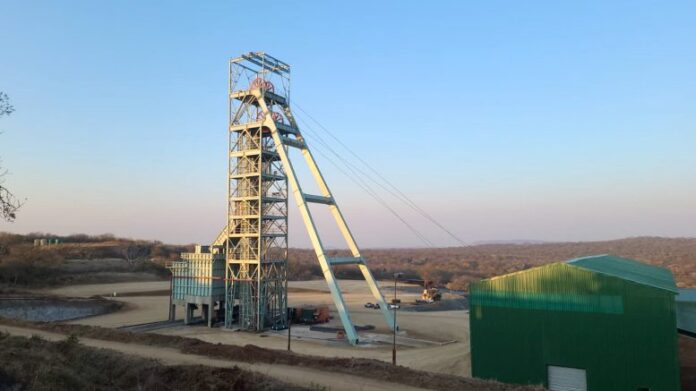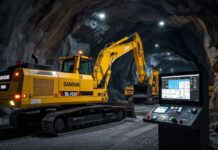
Zimbabwe-focused Caledonia Mining Corporation (LSE, NYSE American: CMCL) says it will decide by year-end whether to develop its Bilboes gold project in stages, a move aimed at reducing equity dilution and financial risk.
CEO Mark Learmonth said management is considering halving the original plant size, which was outlined in a May 2024 preliminary economic assessment (PEA). That study envisaged a 10-year mine producing 150,000 ounces of gold annually at an all-in sustaining cost of just under US$1,000 per ounce. Bilboes hosts 33.7 million tonnes of measured and indicated resources grading 2.3 grams per tonne, equating to about 2.5 million ounces of contained gold.
“This is a big project for our company. We get one chance to get it right,” Learmonth said. “A smaller starter project will be materially cheaper and therefore easier for us to fund with less recourse to equity.”
Investor Climate in Zimbabwe
Despite Zimbabwe’s low ranking in global mining surveys, investment is flowing into the country. Platinum producer Zimplats has ploughed more than US$300 million into mine replacements, smelters and sulphide projects in the past year. Tsingshan, a Chinese-backed firm, commissioned a US$1 billion steel plant in 2024, while Chinese companies have injected over US$1 billion into lithium since 2021. Harare will ban lithium concentrate exports in January 2027, pushing miners towards in-country processing.
Learmonth said investor sentiment is slowly improving, noting fewer policy shocks and rising risk in other African jurisdictions. Caledonia’s established operations at the Blanket mine and local expertise are seen as advantages in navigating Zimbabwe’s bureaucratic environment.
Shares in Caledonia have more than doubled over the past 12 months, closing at US$36.55 on Thursday, giving the company a market capitalisation of US$705 million.
Phased Approach
A smaller first-phase development at Bilboes – processing around 120,000 tonnes per month – could double Caledonia’s current output from Blanket, which produces 75,000–80,000 ounces annually. The staged approach would also allow the company to use early cash flow to fund later expansion.
Bilboes ore is refractory and will require BIOX processing. Caledonia acquired the project in January 2023 for about US$65.7 million in shares.
The board is expected to confirm its development strategy before year-end. A full build would require a conventional feasibility study, while a phased approach might see the company skip that stage in favour of technical add-ons.
Learmonth stressed that protecting shareholder value through minimal dilution and consistent dividends remains central to Caledonia’s strategy. “Those two disciplines are deeply embedded in our DNA,” he said.
Blanket Mine Performance
Blanket continues to underpin group cash generation, though cost pressures are rising due to deeper mining and energy constraints. A blasting accident at the mine in September claimed one worker’s life.
Currently, about 20% of Blanket’s power comes from solar, with the rest supplied by the unreliable national grid and costly diesel back-up. Caledonia plans to connect to Zimbabwe’s 132-kV transmission network at a cost of about US$10 million, which would give access to cleaner imports from Mozambique and Zambia.
Learmonth said the company remains confident in Zimbabwe’s mining future: “We’re going to triple the size of the company based on growth, yield, and a reappraisal of Zimbabwe.”










